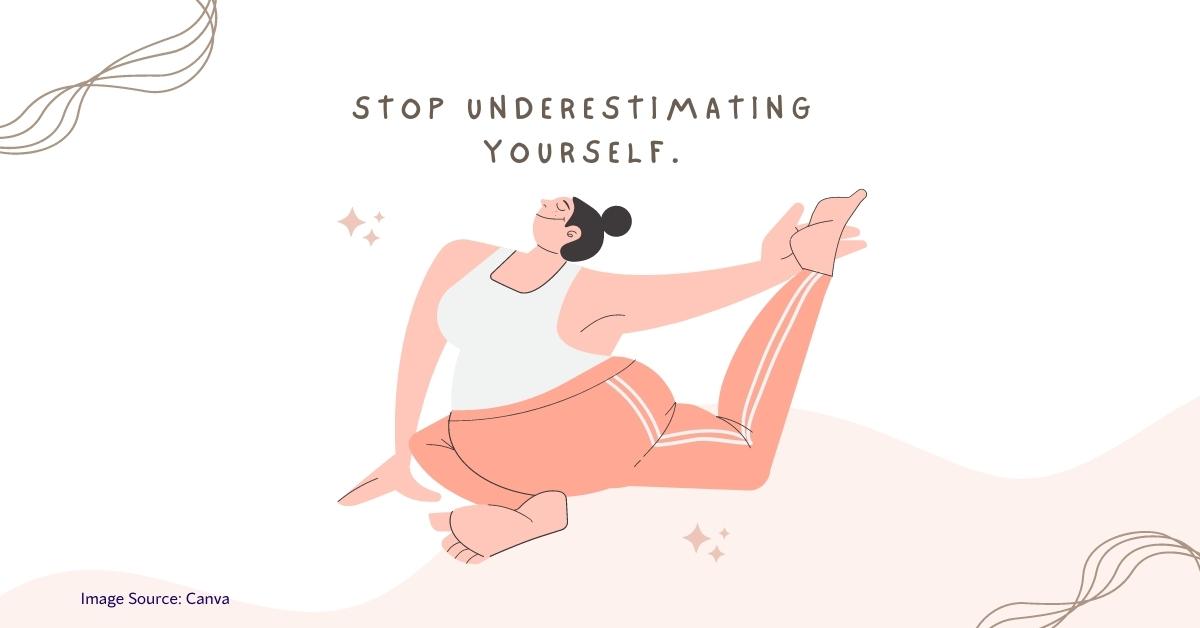Written by Nishtha Nikhil Lapasia | Reviewed By John Victor | Updated On December 18, 2022

Listen to this article in Audio
Do you feel 100 percent confident on every occasion? Don’t you at times feel that you aren’t good enough? This happens because of the feelings of insecurity hidden inside you. Insecurity can be defined by a feeling of uncertainty, lack of self-confidence, and nervousness. It's an inevitable experience we all face at different points of life and it's believed to develop over time and not something a child is born with. Reasons, why we experience insecurities can vary. Insecurities might stem from traumatic events, childhood experiences, our environment, and recent experiences of failure or rejection.
Insecurity is an emotion, and it stems from our beliefs and perspective. Insecurities can have an impact on various areas, such as:
People have insecurities about their physical appearance and the way they look. Whether it’s about being overweight, short, dark, or acne, some people also fear being judged by how they look and their harsh comments on it. They may not see body positivity.
Job insecurity can arise when a person feels inadequate in the workplace. Students can be confused and uncertain regarding what to do next; they may doubt their ability and intelligence. Your self-confidence can affect your job performance and may result in low grades for students.
The insecure person in a relationship lacks trust; they cannot trust or believe in the other person. People maybe also feel they don’t deserve love.
The feeling of insecurity is an unavoidable part of our life; we mostly try to deal with our insecurities by hiding what we are insecure about. We try to hide our insecurities because of the fear of being judged or because of past relationship fears that affect current relationships. For example, a person who is insecure about his physical appearance may avoid going out and meeting people. Or the person who has social insecurity might avoid taking the opportunity of giving a presentation in the office. But hiding our insecurities isn’t an effective way to deal with them; overcoming insecurity is a challenge we all face.
Following are some strategies you can try to change your perspective and overcome insecurities more effectively:
Introspect and reflect on the things you feel insecure about, and try to find out the reasons for your insecurities. Getting to the root cause of your insecurities will help you to overcome them. It might be difficult for you to do it, but it’s worth it.
Unhealthy comparison arises when we make judgments about others with limited information. This is most common on social media; we compare ourselves with others based on pictures of their incredible bodies, food, and travel without actually having their complete information. Whenever you reach yourself to someone, always try to see the bigger picture. If someone is better than you at something, remember that you have something that the other person lacks. Accept your limitations, celebrate your differences and work in a direction away from self-comparison that affects your self-esteem.
Take note of the parts of yourself, your body, and the inner self that you don’t like; those parts of you need the most love and care. Remember that nobody is perfect. Instead of hiding your insecurities, try to embrace them. Your flaws don’t make you unworthy, unwanted and incapable. Be grateful for who you are. It is one of the most effective ways to deal with insecurities. It will open a gateway to finding the hidden talents you possess. Every one of us has been unique in one way; it is just a perspective on how we see it.
Surround yourself with loving and supportive people; this helps build self-confidence; it makes you feel accepted for who you are. People who genuinely care about you will help you see your unique qualities and abilities and appreciate them.
Think about all that you have successfully achieved in life till now; think about the challenges that you faced and how you overcame them. Reflecting on the good qualities and achievements will remind you that you can achieve things, increasing your self-confidence. An accomplishment is something worth celebrating because it acts as positive reinforcement.
Find something that makes you happy, whether it’s your hobby, an activity, or maybe talking to a friend for a few minutes. Engage yourself in something that makes you feel relaxed. Make sure that you spend some time doing something you like; this will help decrease your negative thoughts and keep your mood happy.
Mindfulness is about being in the moment. Almost all our insecurities stem from unhealed wounds in the past and constant fear of the future. Practicing mindfulness meditation will help you focus more on the present and make you aware that your past mistakes do not define your present and future. Your future is in your hands.
Insecurity is a universal feeling; however, not all of us experience insecurity with the same intensity; if you feel that your insecurities are intense and they are disrupting your daily life, and they are negatively affecting your mental and physical health, then you should take professional help and address your issues with the assistance and support of a psychologist.
Remember, insecurity is a feeling that we all experience; no matter how confident you are, you will have insecure moments. The solution to dealing with insecurities healthily is in how you manage them. Overcoming insecurity requires consistent efforts; it won’t be an overnight process.